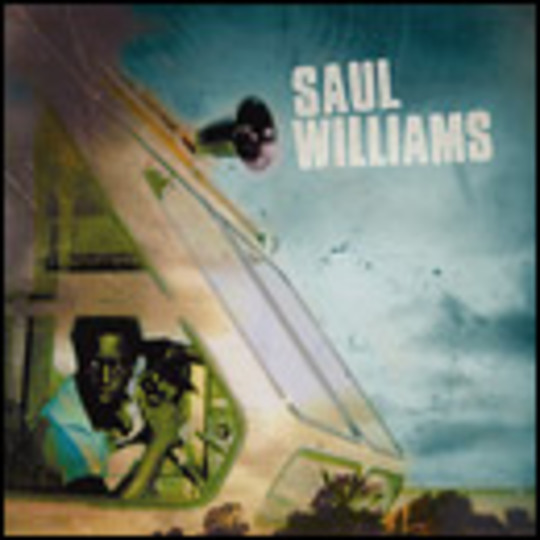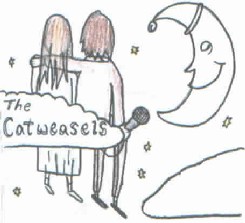Whatever I write will fall short; whatever praise I heap will topple before its completion. Saul Williams does this to you, be you critic, consumer, hip-hop head or beat freak. Be you black, white, Hispanic, Inuit, Chinese, Russian, frog, turtle, polar bear… the effect is universal.
Mouth-agape stunned faces. Puzzled looks and pounding feet. Quizzical expressions. Poetic licenses torn into quarters. No man has the right to rhyme this well.
Only Williams doesn’t rhyme, exactly – this release will rack itself next to your Busta Rhymes and Snoop Doggs, but there’s so little similarity within that it practically deserves a unique classification of its own. ‘Where men fear to tread’-core. Poetry-hop. Purple-Prose-isms. Saul Williams is honest-to-God life made music.
The words surround you, rising like a water spout; Williams is the dragon atop the tower, all gnashing teeth and rabid drool. His critiques are pure to the core, their not-so-subtle messages coming through like a megaphone to the eardrum. ‘Act III Scene 2 (Shakespeare)’ is the finest rally against the Iraq invasion ever heard, its potent poison thinly veiled in a scent of sympathy for those that were sent against their will: “This one goes out to my man taking cover in the trenches with a gun in his hand, then gets home and no one flinches when he can’t feed his fam’”. It’s an entirely contemporary remark: since returning from combat many soldiers from poor upbringings, including many African-Americans, have struggled to make ends meet. Escaping from their day-to-day grind was the sole reason for signing up in the first place. Now back in it, they’re left penniless and sometimes homeless.
‘African Student Movement’ is the most ‘straight-up’ hip-hop effort here, its primitive beats echoing those that Run DMC et al trademarked way back when. Again, though, its lyrics ring loud with a political and social resonance: the track seems to be a calling together of people of African origin worldwide, if not of all people that have suffered persecution of some kind simply because of the colour of their skin. Perhaps I’m not reading into it enough, or too deeply even, but that’s the impression made upon this brain of mine. It’s a theme repeated on troubled childhood tale ‘Black Stacey': _“I dreamt of being white and complimented by you, but the only shiny black thing that you liked was my shoes.”
It’s Williams’ tirade on the wrong turns of hip-hop, though, that stands out on initial listens. ‘Telegram’ is delivered just like that: as a telegram to hip-hop. “Dear hip-hop. Stop. This shit has gone too far. Stop.”
Williams’ self-severing from the hip-hop he's fallen out of love with continues in the chorus: “This ain’t hip-hop no more son, it’s bigger than that… This system ain’t for us, it’s for rich people. And you ain’t rich, dawg, you just got money. But you can’t buy shit to not get hungry.” A better assessment of modern-day hip-hop, with its gangstas, bling and cribs, you will not hear. As if his tongue is firmly in cheek, Williams’ words are backed by crunching guitars straight out of the Beastie Boys’ earliest rap-metal meanderings: the past meets the present in glorious future colours.
Returning to that opening sentence: everything you’ve read above fails to do this album justice. It’s more than these words; it’s more than just hip-hop. Its importance is absolute. Buy. Embrace. Learn. Teach. Love. Live.
-
10Mike Diver's Score






















